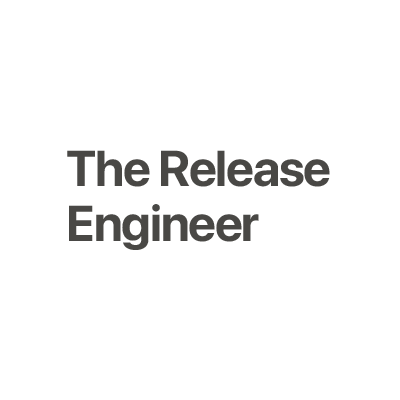Cricket is in the subcontinent blood. I dreamt of running through the air, bowling the fastest ball possible to the batter, and shattering the wickets. Much like Wasim Akram, Waqar Younis, or Shoaib Akhtar. A common dream for a kid from the late 90s.
Except I didn’t play much Cricket after high school. Life happened.
After a decade or so, I picked Cricket back up to play in recreationally. Something felt different. I now realized that I was more anxious and uneasy to perform at my best in matches, a remnant of adulthood I guess. In practice, I would perform easier, better, and enjoy more so than I would in the match.
Performance Psychology dictates that great performance is not just skill. It’s not aspirations. The missing ingredient that’s often overlooked is Confidence.
I came across this book that came highly recommended: The Confident Mind. Dr. Nate Zinsser’s lifework has been to make it methodical to find confidence in one’s performance, be it at olympics or at the meeting room presenting. The latter I had less problems with.
This article is a distillation of my learnings from the book.
Performance = Skill + Confidence
I always assumed that by only practicing harder, I will perform confidently. I believed that skill alone is enough to perform your best. This book taught me otherwise.
Confidence is the mental context in which your skills are performed. And it’s important that you set your mental context to be in your favor in order to unlock your potential skill. Confidence makes peak performance possible.
Nate defines confidence as:
A sense of certainty about your ability, which allows you to bypass conscious thought and execute unconsciously.
It's the feeling when you bowl or bat instinctively, not second-guessing yourself, fully absorbed in the moment.
Confidence results from a set of mental beliefs and mental preparation one can foster continuously. Confidence is not what happens to you; it’s what you think about what happens to you.
Reframing Pressure
In big moments, we often put ourselves under undue pressure. This comes from the outcome-oriented mindset. That one must perform in order to gain the result. It shifts the focus from process to outcome. And it emphasizes something that’s not in our control. A painful strategy!
Instead, focus on the process from a place of curiosity. This exploratory-curiosity is playful, enjoyable and puts the emphasis back on the process that one can control. It’s more fun that way too, which is the point after all.
The autonomic nervous system
I used to hate the feeling of anxiety that came along with sweaty palms and racing heart. It would feel crippling. Nate teaches that this is our body gearing up to do its best for something that it believes is important. These nerves are a sign of readiness from the perspective of our body and keeps us sharp to perform our best.
Belief is a choice. And I do not factually know whether the activation of the autonomic nervous system is actually because we are ready or not, but I do know that choosing to believe that it helps me take advantage of it instead of being disadvantaged by it. It takes practice. And I am more comfortable leading into the big moments now.
Nonlinear Returns: Truth about Practice
Practice feels like a grind especially when you don’t see fast results. But the trick is to keep showing up.
Results from effort are never guaranteed to be linear. They have long plateaus of no-progress. And breakthroughs happen unpredictably. The key is to keep showing up and practicing intently. Progress flatlines, then spikes. A staircase, not a ramp.
This also builds resilience and trust in the process.
The Confidence Bank: Storing Wins
Nate advises the reader to emphasize wins more than misses. The typical habit is to emphasize our shortcomings, but they do not help us when we want to be more confident. Emphasizing on losses is worse if we internalize these as our identity.
Nate encourages the idea of deliberately emphasizing wins, recording and referencing them often to build up the belief from evidence that we can perform well. This helps continuously build confidence and improve.
Importantly, it does not mean ignoring one’s faults completely. The goal is to objectively understand what went wrong, having the mindset of using that episode as a teaching moment and moving on from it fast.
Belief as a way to propel or retreat
A goal of the book is to show how one can create a self-belief that you have the ability to perform. The stories you tell yourself have the capacity to produce confidence or insecurity. And our negativity bias defaults most of us towards the latter if we are not intentional.
Affirmations helps with “installing” new beliefs into our operating system. You can read them with intent. Or write them into a journal daily. I have an affirmations script audio that I play regularly.
We know that we tend to repeat the negatives implicitly. Why not be intentional and choose a positive story for ourselves instead?
Visualization as a way to do more reps
I had always been curious about hypnic jerk. Hypnic jerk occurs when we are in the dreamy state and a movement in our dream tends to contract the muscles in reality.
Turns out, we can evoke similar phenomenon during an intentional visualization session. Visualize in first-person, involve senses, emotions, and feelings. By incorporating this before the performance, it creates a sense of been-there-done-that and improves confidence.
Certainty During Performance: Kill the Critic
As soon as you enter the arena, stop the learning process. When you’re performing, you’re not diagnosing yourself. Every story you tell yourself must be a story of trusting yourself and your upcoming performance. Could you have done more? Maybe. But this is not the time to think that. You’ve done enough and now it’s to see how well you do. Nate talks about several routines and techniques to follow before and during the performance.
Closing thoughts
The author shared a story of a bus driver on his way to a psychology conference in New Orleans. I highly recommend reading the epilogue to get the full scoop but here’s the part that’s remarkably profound:
“Good morning, everybody! It’s a beautiful day in New Orleans! I hope you’re all having a good day. If you’re having a bad day, CHANGE YOUR MIND and have a good day!”
The power to change our mind is in our hands. While we talk about changing our minds when it’s about what dessert to eat, we rarely think so about our mindsets.
We can choose to be intentional, be confident, provide ourselves the tools to perform our best.
The book is a distillation of practical tips and techniques to greatly improve confidence. It’s a workbook, reading it along will not suffice. Recommended!



